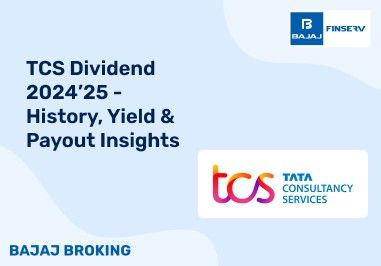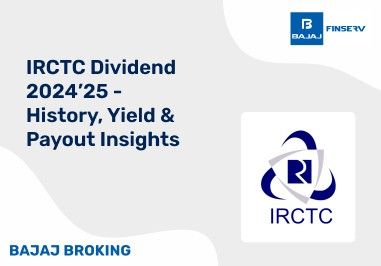Understanding UIN for Stock Trading
The stock market in India provides interesting opportunities for investors. However, are you aware that some transactions demand a Unique Identification Number (UIN)? This unique number works similarly to a financial identification card, making the trade process smoother and keeping it safe. Both experienced investors and those who are new to trading need to learn about UIN numbers. This article will tell you all that is necessary to understand about UINs, such as the times when one is required and the steps for registering.
What is a UIN Number?
UIN number registration will be central to your trading activities in India. It is a reference point linking your trading accounts and KYC (Know Your Customer) details with the Securities and Exchange Board of India (SEBI).
Simplified Transactions: With a UIN, your trading activities across different brokers and exchanges become easily traceable. This simplifies reporting and record-keeping for both you and the authorities.
Enhanced Security: The UIN system adds an extra layer of security to your trading experience. Linking your UIN number to your KYC details helps prevent fraudulent activities and protects your financial interests.
Streamlined Processes: A UIN can potentially streamline processes in the future, such as faster account opening or easier transfer of holdings between brokers.
Process for Applying and Obtaining a UIN
Here is how to get your unique identification number:
Who Can Apply: Any Indian citizen with a valid PAN card is eligible to apply for a UIN.
Application Channels: You can conveniently apply for your UIN through your existing trading broker or directly through the online portal of the Central Depository Services (India) Limited (CDSL).
Documents Required: The application process for the unique identification number typically requires minimal documents, usually just your PAN card copy and a valid ID proof.
Processing Time: Once you submit your application, the processing time for obtaining your UIN is generally quick, often within a few working days.
Benefits of Having a UIN for Stock Trading
Obtaining a UIN offers several advantages for Indian stock market participants:
Simplified Account Management: With a UIN number linking your trading accounts, managing them becomes easier. You can potentially track your holdings and transactions across different brokers in one place.
Enhanced Transparency: The UIN system promotes transparency in the Indian stock market. It helps regulatory bodies monitor trading activities and prevent malpractices.
Faster Account Opening: In the future, having a UIN might expedite the account opening process with new brokers. Since your KYC information is already linked to your unique identification number, brokers might be able to verify your details faster.
Streamlined Future Processes: The UIN system has the potential to streamline various processes in the future. For example, transferring your holdings between brokers or requesting account statements might become easier with a UIN in place.
Common Misconceptions About UIN for Stock Trading
It is important to address a few common misconceptions about UINs:
UIN is mandatory for all stock trading: You only need a UIN number if you are trading with a capital amount of Rs 1 lakh or more. For smaller transactions, a UIN is not mandatory.
Getting a UIN is complex and expensive: Obtaining a UIN is a hassle-free process with minimal documentation required. There are no associated fees for applying or maintaining your UIN.
You need a UIN to open a trading account: No, a UIN is not required to open a trading account with a broker. However, if your trading activity triggers the SEBI limit for delivery-based transactions, having a UIN will be necessary to proceed.
UIN needs to be renewed regularly: Your UIN number registration remains valid indefinitely once issued. There's no need to worry about renewals or expiry dates.
How to Obtain a UIN for Stock Trading?
A UIN can be obtained in a fairly straightforward way:
Eligibility Check: Ensure you're an Indian citizen with a valid PAN card. This is the basic requirement for applying for a UIN.
Choose Your Application Channel: You can either apply online or through Point of Service (POS) agents appointed by NSDL. The application process requires minimal documents, including a copy of your PAN card along with a valid ID proof (Passport, Voter ID, Aadhaar card, etc.)
Submit Your Application: Once you've gathered the necessary documents, complete the application form online or submit it to your broker.
Processing and Issuance: The processing time for UIN applications is generally quick, often within a few working days. You'll receive your UIN number electronically or through your chosen application channel.
Importance of UIN in Stock Trading
The following are some reasons why having a UIN is important:
Enhanced Security: Through your UIN number registration, it becomes more challenging for unauthorized individuals to engage in fraudulent activities. This strengthens the overall security of the Indian stock market ecosystem.
Streamlined Reporting: With a UIN, your trading activities across different brokers are linked, simplifying reporting for both you and regulatory bodies. This transparency helps maintain a fair market environment.
Peace of Mind: Knowing your trading activities are linked to a unique identifier like a UIN can provide peace of mind. It fosters trust and encourages responsible participation in the Indian stock market.
Conclusion
The Unique Identification Number is necessary for traders to simplify their workflow and deal with larger capital while trading. It acts as your unique identifier, streamlining processes and enhancing security. Obtaining a UIN is a quick and hassle-free process. By taking this step, you contribute to a more transparent and secure Indian stock market, improving your experience along with that of your fellow traders.
Disclaimer: Investments in the securities market are subject to market risk, read all related documents carefully before investing.
This content is for educational purposes only. Securities quoted are exemplary and not recommendatory.
For All Disclaimers Click Here: https://bit.ly/3Tcsfuc












